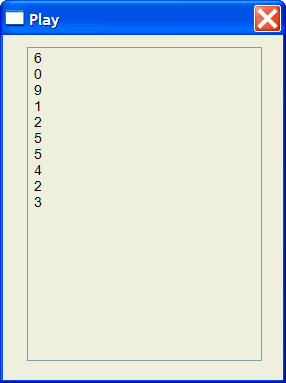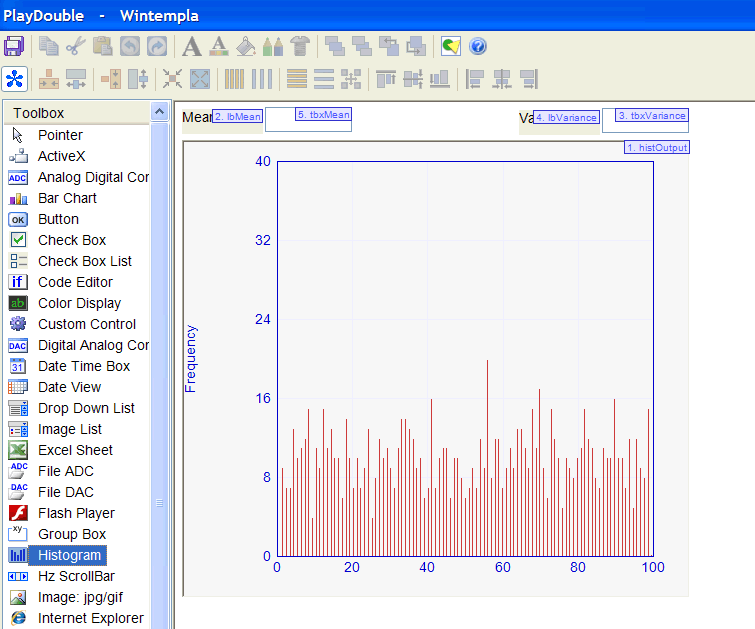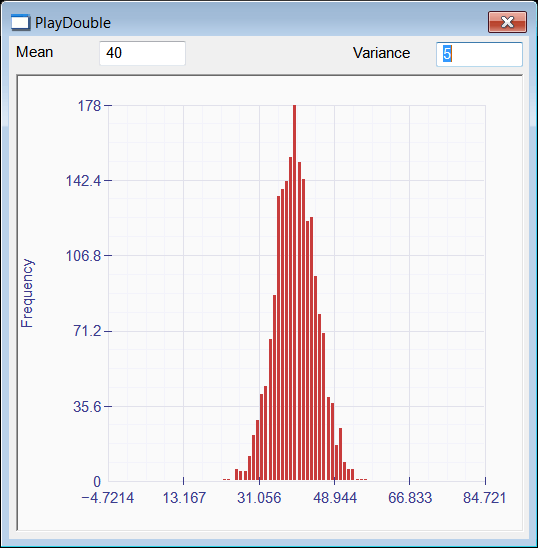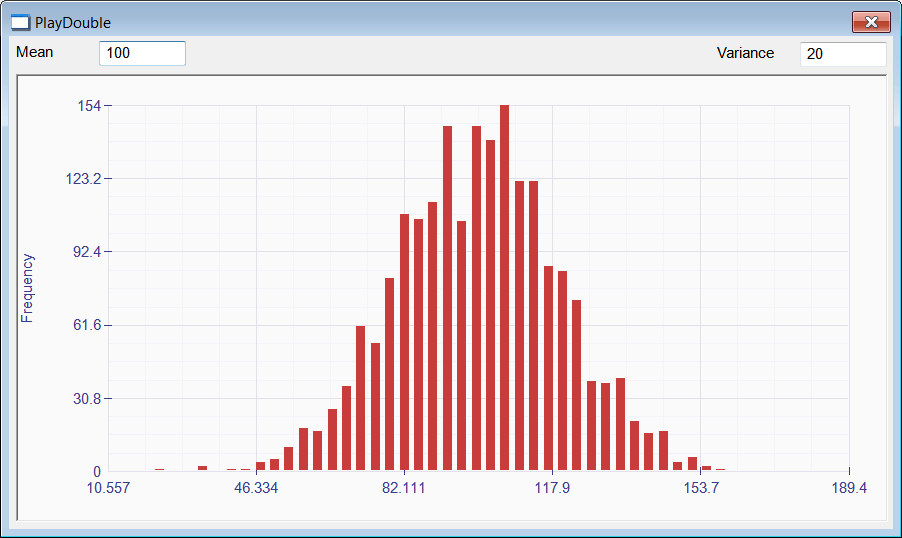- Create the project
- Open Wintempla
- In the toolbar click the
 Show All Controls in Toolbox
Show All Controls in Toolbox - Draw a histogram control in the GUI
- Complete the GUI as shown below
- Double click the textbox for the mean. In the Events tab, check the Change event
- Double click the textbox for the variance. In the Events tab, check the Change event
Cree un programa llamado PlayDouble para generar 2000 números de punto flotante usando una distribución de probabilidad normal.
- Cree el proyecto
- Abra Wintempla
- En la barra de herramientas haga clic en
 Show All Controls in Toolbox
Show All Controls in Toolbox - Dibuje un control de Histogram en la GUI
- Complete la GUI como se muestra debajo
- Haga clic en la caja de texto para el media (mean). En la pestaña de Events, marque el evento Change
- Haga clic en la caja de texto para la varianza (variance). En la pestaña de Events, marque el evento Change



